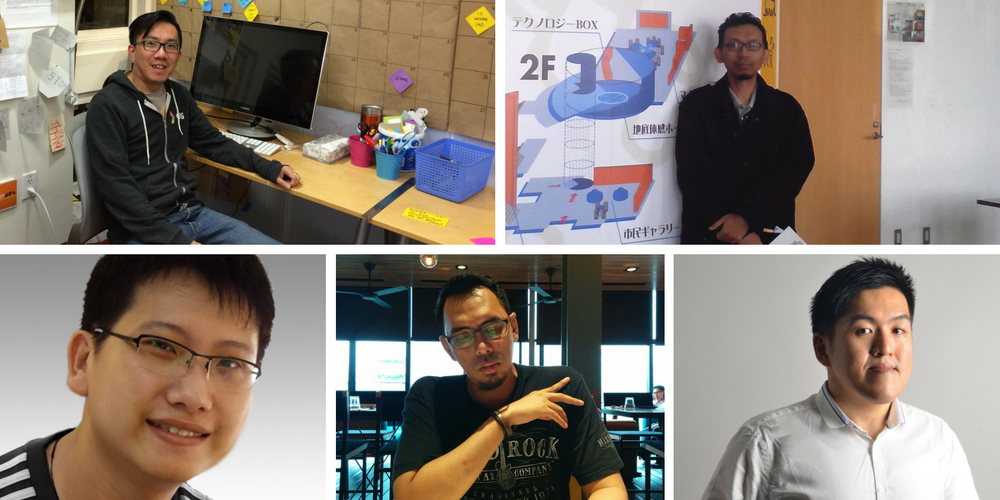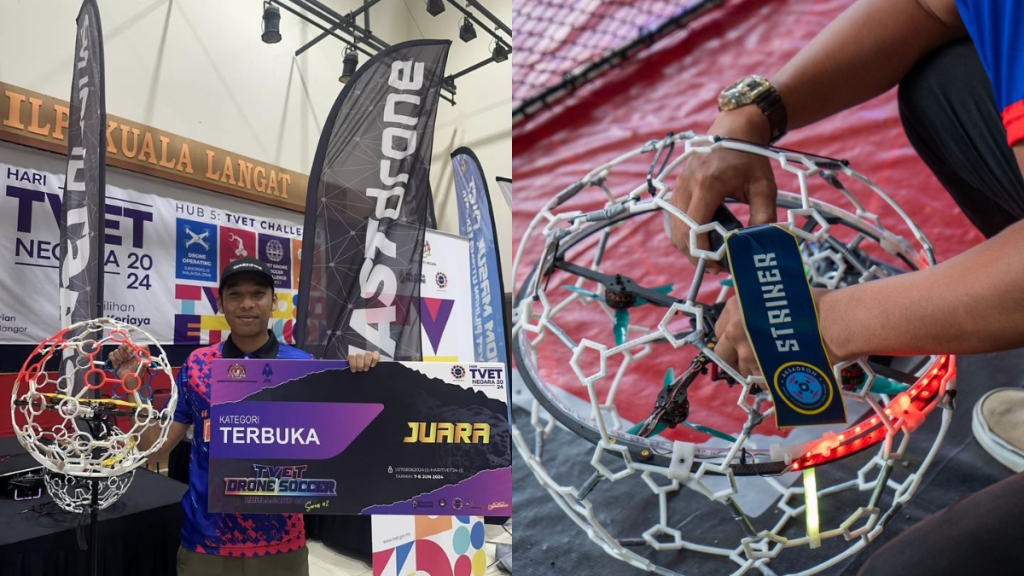Not too long ago, Dato’ Yasmin Mahmood, the CEO of Malaysia Digital Economy Corporation (MDEC) made the announcement that coding and programming would be introduced into Malaysian schools.
According to MDEC, starting January 2017, Computational Thinking will be integrated into the new Standard Based Curriculum for Primary (KSSR) and Standard Based Curriculum for Secondary (KSSM). This is part of the agenda spearheaded by the Ministry of Education Malaysia (MoE), and supported by MDEC. It is estimated that this integration will affect an estimated 1.2 million students from 10,173 schools nationwide next year.
The Prime Minister has clarified, “Computational thinking and computer science will be integrated into all subjects for primary schools in phases, starting with Year One in 2017, Year Two in 2018 and so on. Computer science will be offered to secondary schools, starting with Form One and Form Four next year.”
It’s a big step ahead for our country if it can be carried out. I’ve been looking at it mostly from an education standpoint, but what do programmers and coders already in the industry think? Will they see this as further recognition of the skills they possess or, as people who already know the difficulties of learning it, will they raise new challenges that have to be overcome?
We speak to 5 coding veterans, most of whom have over 15 years of experience in the industry, to get their insights.
In general, the coders and programmers liked the idea, though many expressed concerns about how the implementation would play out.
Dr Lau Cher Han:
A data scientist and founder of cherhan.net. He’s been a full stack developer for over 20 years and conducts training for corporates like Intel, HP, Jabil, Standard Chartered, and trains universities students under MDEC and TalentCorp programmes.
“Definitely a good move to catch up with the trend. Coding is the new English; in my parents’ time they used to tell us that learning English is good for our future, now it’s time to learn coding.
To be creative, one cannot just learn coding for the sake of learning, but needs to fully understand the concepts and fundamental differences of each language and technology stack to unleash their creativity.”
Mohd Kamal Bin Mustafa:
CTO at Xoxzo Inc. He gives talks at Python Conference (Pycon) every year, organises local tech meetups in JB, and occasionally writes about software development at devkini.xyz.
“There are 2 school of thoughts here when it come to teaching kids how to programme—those who prefer it with a foundational concept in Computer Science and those who prefer what we can call the ‘pop computing’ as popularised by Code.org movement.
I’m not decided yet but I think it’s important to look at the big picture and what we really want out of our kids. The primary objective for primary education is to generate the ‘spark’, while having fun. So it is important for the curriculum to get some balance around this.
We shouldn’t hardpress the kids with too many theories but at the same time we shouldn’t also be painting the picture that programming is as easy as moving the blocks around.”
Tang Tung Ai:
CEO and developer at StrongByte Studio. He started coding when he was 13 and started his career 16 years ago as Software Engineer. He’s been involved in various industries such as banking, telecommunications, manufacturing, logistics and has also worked as a replacement teacher in a secondary school.
“I think it’s a good start. In this era of technology, programming language is going to be as important as other primary languages like English.
On top of that, coding will actually improve and train the student’s logical thinking just like mathematics. Both mathematics and coding require good logical thinking in solving equations.”
Ahmad Fairiz:
Founder, CEO & CTO of Recite Lab. Prior to founding his startup, he was the CEO of Amanie Nexus, the IT arm of the Amanie Group and also served as the CTO of Accountants-Online, a subsidiary of Heitech Padu.
“I believe this is a very good move and I am in full support of it. The timing is just right with kids nowadays being more susceptible to technology than 10 years ago.
It is indeed about time that we educate the future generation to be producers rather than consumers of the digital content.
MDEC has the ambitious vision of introducing the paradigm of the makers’ mindset through its My Digital Maker movement. That provides that sense of purpose in teaching coding schools. In theory, there is a continuity and there is a clear objective. In practice however, it will depend on how well the execution is done. For that, only time will tell.”
Tan Yee Siang:
A full stack developer working in MaGIC. He is also guest lecturer at The One Academy, teaching designers to use code to express their creativity. He has built software ranging from PlayStation games, mobile apps, e-commerce, art installations to custom-built web applications.
“Coding is definitely a good start, but we should also never neglect the importance of cultivating the maker spirit among the students.
More often, I like to portray myself as a maker more than a coder. I learn coding because it is the tool required to build software, not other way round. We need more creative makers, not coding machines.
Back in the industrial era, one might have needed to travel all the way to Germany to learn about mechanical engineering, but this is not the case for software developers. I can self-learn software development through open source projects and all I need are the Internet and a community that is willing to share.
I hope this programme will help bridge the gap between rural and the urban area students, especially those who are underprivileged.”
Challenges In Implementation

Although they liked the idea, they did of course foresee some challenges. We’ve already covered some of them before in a previous article, but these are some of the concerns that they shared.
1. Staffing
All agreed that staffing would be a problem, particularly with a subject like this. The government is already training teachers to run the subjects, but as Dr Cher Han said, “Some of the schools are short of teaching staff, and some are overloaded, so introducing something new and fast-changing will be a great challenge.”
Ahmad Fairiz came up with the suggestion, “I do feel that readiness of the teaching force alone will not be sufficient enough to make the program effective. They are not coders by profession.
Perhaps it would be a good idea for the relevant bodies to reach out to the development community and invite them as guest tutors from time to time or do talks on special topics for the students. This will help to fill in the gaps that the teachers cannot address due to their limited experience as developers.”
2. Syllabus Content
Yee Siang pointed out, “No matter how much we like to focus on the fundamental concept, data structure or algorithm, we still need to pick a programming language as the medium.
I hope an open-source base language would be used as proprietary software vendors can lock users in to their platform by ensuring that they are not readily compatible with potential rivals. We definitely want to avoid the entire programme being run as exclusive training schools for these companies.”
Tung Ai’s concerns were more on the range of content. He said, “There shouldn’t be too much theory like what the current local universities have been practicing. Too much theory will turn down the interest of student at the early stage. There should be more hands-on classes for them to build some simple app that they can relate to their current syllabus like physics, e.g. build a simple app to illustrate how gravity works.”
3. Suitability of Content
There is also a concern that coding might not be everyone’s cup of tea. According to Ahmad Fairiz, “Programming is not for everyone, just as Maths is not for everyone. Thus, the expectations of introducing coding in schools needs to be realistic.
Setting the success metrics too high would probably cause a premature cancellation of the programme (like teaching Science and Maths in English) while setting it too low may produce a false positive outcome. A thorough consideration must be taken by all relevant parties when setting the success criteria for this initiative.”
Tung Ai also shared, “Being in the industry for 16 years, I’ve worked with various software engineers and some of them are just not suitable to become coders no matter how hard they try. Coding itself require passion and a high level of interest in learning new technology and solving problems.”
4. Continuity
Yee Siang brought up the point of what comes next after the students have learnt the programming language. As he put it, “How will this integrate with the current IT courses provided by local colleges or universities? Do we have a maker-friendly environment for the further growth of these people?”
Mohd Kamal added, “Finally, it important for all of us to not get sidetracked into thinking that this initiative is to prepare the kids to be the next software engineers. They are not. The primary objective is to generate the interest so that they have an idea what the future has for them.”














